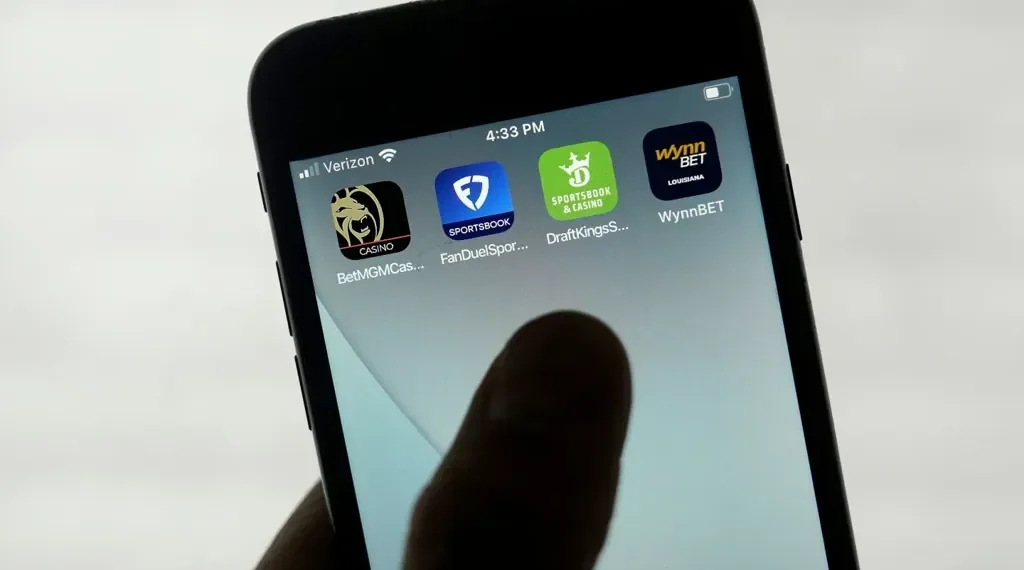Online Gambling Risk Surge amid Industry Boom
Online betting has become one of the fastest-growing segments of the U.S. entertainment and financial technology markets, driven by expanded legalization, major platform investment, and consumer demand. With 14% of U.S. adults now wagering on sports online at least occasionally, analysts say the industry’s growth brings significant financial and behavioral risks that consumers must understand. Public health experts and personal finance advisers warn that the convenience of mobile betting accelerates losses and increases the likelihood of developing harmful gambling habits.
As sports betting scandals draw national attention, regulators and responsible gaming advocates are urging users to adopt strict limits and avoid treating digital gambling as a source of income. While the online gambling sector continues its expansion across 38 states and Washington, D.C., concerns about financial literacy, mental health, and long-term user safety remain at the forefront of policy discussions.
The Rapid Expansion of Online Betting
The U.S. gambling industry has undergone a widespread transformation since the Supreme Court overturned a federal ban on sports betting in 2018. According to the American Gaming Association, 38 states and Washington, D.C., now legally permit some form of sports wagering, accelerating the shift toward digital platforms such as FanDuel, DraftKings, BetMGM, and others.
Industry analysts say this rapid expansion has made mobile betting a mainstream activity. A February survey by the Associated Press-NORC Center for Public Affairs Research found that 14% of U.S. adults regularly or occasionally place online sports wagers. The figure is expected to grow as state-level legislation expands, major leagues form commercial partnerships, and platforms increase promotional spending.
Caleb Silver, editor in chief at Investopedia, says the trend reflects broader financial behavior patterns. “Online gambling and sports betting are only becoming more popular,” he said. “But gambling and ‘responsibly’ feel almost contradictory, because the activity is inherently tied to risk.”
Why Digital Betting Carries Higher Risks
Experts say the structure of online platforms makes digital gambling riskier than betting in person. Heather Eshleman, director of operations at the Maryland Center for Excellence on Problem Gambling, notes that mobile apps reduce friction, enabling people to place frequent wagers with minimal time to pause and reconsider.
Unlike traditional casinos, digital platforms allow rapid-fire betting, round-the-clock access, and frictionless deposits. Features such as micro-bets, in-game wagers, and prediction markets can intensify engagement. New platforms like PredictIt and Kalshi now allow people to wager on political outcomes, weather events, and pop culture news, further expanding the gambling ecosystem.
Consumer protection researchers warn that these low-friction environments mimic other high-risk financial behaviors, including day trading, options speculation, and cryptocurrency trading. Silver says the similarities are increasingly visible in user behavior and the language of finance communities.
Identifying Early Warning Signs of Problem Gambling
Public health officials emphasize that one of the earliest signs of a gambling problem is the amount of time a person devotes to betting. If online wagering begins to replace essential activities—from family responsibilities to work obligations—it may indicate a deeper issue.
Financial warning signs include using money intended for essential expenses such as rent, food, or utilities. Eshleman advises consumers to treat gambling solely as entertainment. “Only use money you would spend on fun, not money for basic needs,” she said.
Experts also recommend setting a predetermined “tap-out point”—the maximum amount a person is willing to lose before stopping. According to Silver, these rules must be firmly established before betting begins. Without preset limits, the combination of excitement, loss-chasing, and frictionless apps can lead to overspending.
Tools and Strategies to Limit Digital Gambling Risks
Most major sports betting platforms now offer built-in responsible gambling tools. These include features that allow users to cap their spending, time spent on the app, deposit amounts, and cumulative losses. But these tools only work if they are activated before gambling begins.
Eshleman stresses that consumers must set limits in advance. “Once you’re caught up in the excitement, you’re unlikely to stop and use the tools,” she said.
External apps such as GambBan and BetBlocker can block gambling sites across multiple devices, serving as an added layer of protection. For individuals experiencing severe difficulties, the national 1-800-GAMBLER hotline and groups like Gamblers Anonymous provide confidential assistance.
FanDuel and DraftKings, two of the largest betting platforms, say they are investing heavily in responsible gaming programs. Cory Fox, FanDuel’s senior vice president of public policy and sustainability, compares responsible gambling features to wearing a seatbelt. DraftKings’ chief responsible gaming officer, Lori Kalani, echoes the sentiment, likening limit-setting tools to planning a safe ride home before drinking.
Executives say these tools also help preserve the companies’ long-term reputational and regulatory stability, which they describe as a “social license” to operate.
Understanding the Financial Mechanics of Betting
As online gambling merges with broader financial behavior, experts say consumers should understand the basic economics of betting before opening an account. Silver notes that Investopedia expanded its glossary to include betting terminology after observing closer ties between speculation and online wagering.
Key terms like “money line,” “parlay,” “odds,” and “spread” form the foundation of sports betting. Without understanding how these mechanisms work, users may underestimate potential losses. Silver advises players to approach online gambling with “no expectation of return,” emphasizing that most users will lose money over time.
Mental Health and the Role of Coping Mechanisms
Public health researchers warn that some people turn to online betting as a coping mechanism. Eshleman says users who are struggling emotionally may be more vulnerable to harmful gambling patterns. She recommends healthier stress-relief strategies such as exercise, music, sleep, and social activities.
Social gambling—such as placing small, infrequent bets with friends—is considered safer than isolated betting. “If you’re doing it alone, that’s a red flag,” Eshleman said. She notes that wellness habits, social engagement, and mental health support can reduce dependency on the thrill of digital wagering.
Help for Problem Gambling
The National Problem Gambling Helpline™ (1-800-522-4700) is operated by the National Council on Problem Gambling. The helpline serves as a one-stop hub connecting people looking for assistance with a gambling problem to local resources. This network includes contact centers that cover all 50 states and the U.S. territories.
The National Problem Gambling Helpline™ offers call, text and chat services 24/7/365.
1-800-522-4700 is the phone number for the National Problem Gambling Helpline™. It serves as a resource for individuals who may be struggling with problem gambling or gambling addiction, or their loved ones. When someone contacts 1-800-522-4700 they will receive support, information and referrals to services that can help them address their gambling-related concerns.
This article was rewritten by JournosNews.com based on verified reporting from trusted sources. The content has been independently reviewed, fact-checked, and edited for accuracy, neutrality, tone, and global readability in accordance with Google News and AdSense standards.
All opinions, quotes, or statements from contributors, experts, or sourced organizations do not necessarily reflect the views of JournosNews.com. JournosNews.com maintains full editorial independence from any external funders, sponsors, or organizations.
Stay informed with JournosNews.com — your trusted source for verified global reporting and in-depth analysis. Follow us on Google News, BlueSky, and X for real-time updates.














